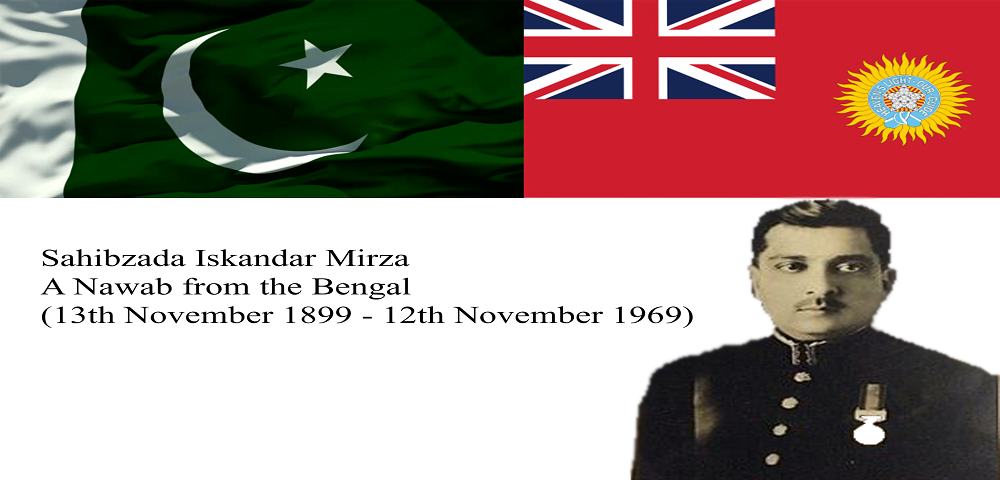Introduction of Iskandar Mirza:
| Country | Pakistan |
| Date of Birth | 13th November 1899 |
| Place of birth | Murshidabad Bengal Presidency, British India |
| Death | 12th November 1969 |
| Place | Imamzadeh Abdullah, Tehran, Iran |
| Cause of Death | Cardia Arrest |
| Profession | Army Major |
| Spouse | Riffat Begum (1922-1953) Nahid Mirza (1954-1969) |
| Children | 6 children |
| Father | Fateh Ali Mirza |
| Higher Education | Royal Military College, Bombay University |
| Military Service | 1920-1954 |
| Branches | British Indian Army Pakistan Army |
| Rank | Major-General |
| Unit | Corps of Military Police |
| Commander | Corps of Military Police East Pakistan Rifles |
| Battles | Waziristan Battle, India-Pakistan War (1947) |
| Military Awards | Order of the British Empire General Service Medal |
| Politics | 23rd October 1947- 27th October 1952 |
| Governor General | Governor General of East Pakistan |
| President | First President of Pakistan |
| Service Period | March 1956 – 24th October 1958 |
| Arrested | 27th October 1958 |
| Last days of Life | London |
| Awards | India General Service Medal (1909) King George V Silver Jubilee Medal 1935 King George VI Coronation Medal 1937 Officer of the Order of the British Empire (OBE) 1939 Companion of the Order of the Indian Empire (CIE) 1945 Pakistan Independence Model 1948 Queen Elizabeth II Coronation Medal 1953 Grand Collar of the Order of Pahlavi of the Empire of Iran 1956 Order of the Supreme Sun, 1st Class of the Kingdom of Afghanistan 1958 |
Brief Information:
Sahibzada Iskandar Ali Mirza was born in “Murshidabad Bengal Presidency, British India” on the date of 13th November 1899. He was the first President of Pakistan and terminated by the Army Commander General Ayub Khan in the year of 1958. He got his early education from native city Murshidabad and then went for higher education at the University of Mumbai, and joined the Military Academy in “Sandhurst” in “United Kingdom (UK).” He was in politics from 1946 and after the creation of Pakistan, he came to Pakistan and became the first Defense Secretary of Pakistan by the Prime Minister of Pakistan Liaqat Ali Khan. He was in the Government when there was the bad condition of the country and then Army Commander General Ayub Khan terminated ‘Iskandar Mirza’ from the post of the Government in the year of 1958.After that, he went to the United Kindom (London) and the remaining days of his life were spent in Iran, buried in Iran in 1969[1].
There are some negative minded people in Pakistan history and they don’t believe that Iskandar was a responsible man to establish the instability in politics in the country[1].
Intimate Family:
Sahibzada Iskandar Ali Mirza was born in the city of British India, Murshidabad on the year 13th of November 1899. He was from a rich family from the line of Nawab of Bengal. Sahibzada Iskandar Ali Mirza was the youngest child of Fateh Ali Mirza that was born in the year of 1864 and died in 1949 after the creation of Pakistan[1].
The title of Mirza (lit. Master), is called by the honor and respect of their surname, it was due to the Bengali crowned heads. His grandfather was from the roots of Arabian descent and he was also some type of Arabian accent. He was from a rich family in Bengal, and it was close to the British Empire. His father belonged from the ruling house of Murshidabad and he was the Grandson of the First Nawab “Mansur Ali Khan” [1].
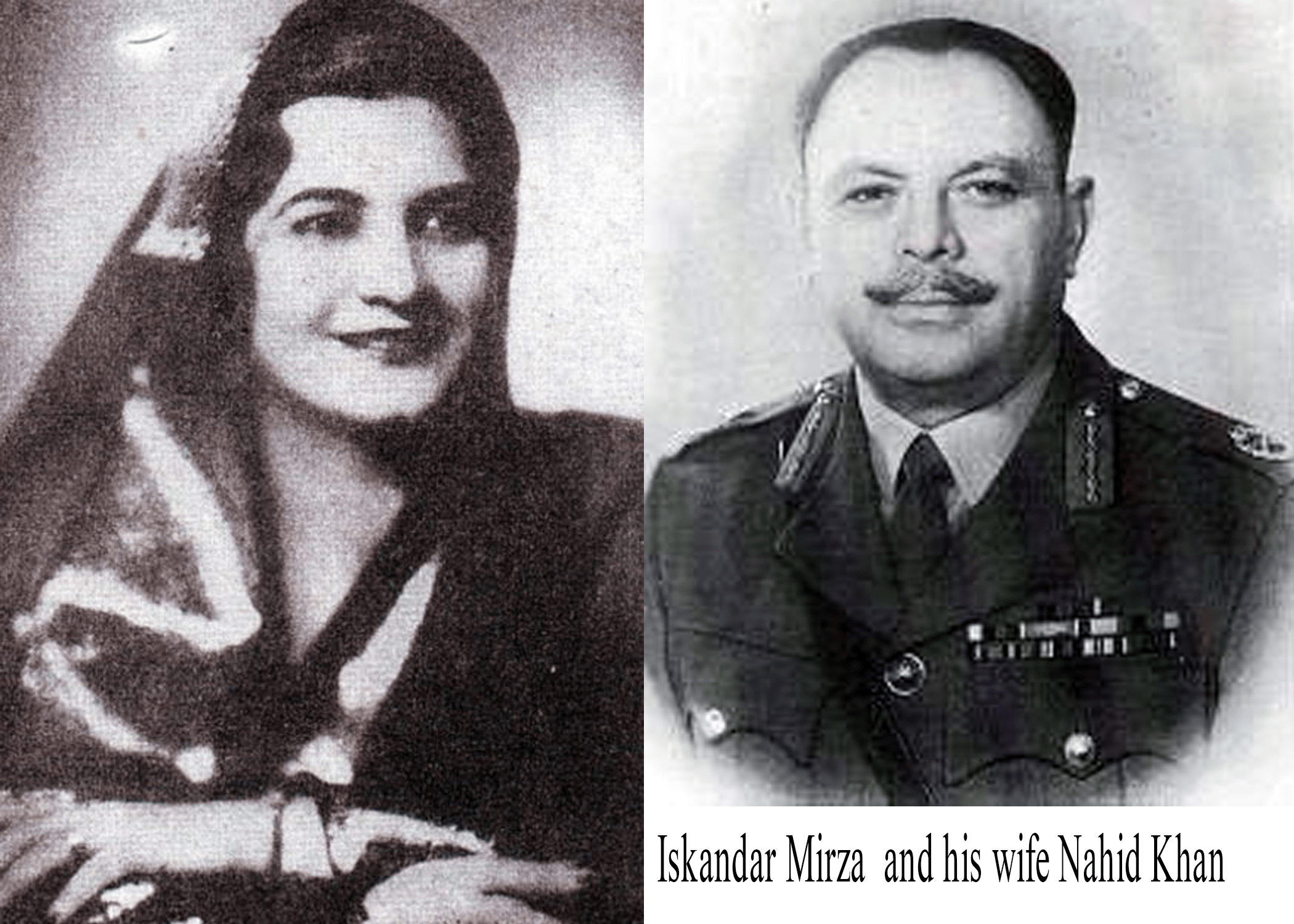
Armed amenity and schooling:
He completed his early education from the native city of Bengal, Murshidabad. He was in Bombay when he completed education from the Elphinstone College of the University of Mumbai. He wanted to become an Army officer, joined the “Royal Military Academy in Sandhurst.” British government selected him as the King’s Commission. He was the first Indian graduate from the military academy and later he got admission in the British Indian Army as a 2nd lieutenant in the date of 16th July 1920. After that, his rank was upgraded, and promoted to lieutenant in the British Indian Army and went for the commanding of a Platoon on 30th December 1921[1].
He was attached to the Second Battalion before he was in the Military Police. Most of the time spent in the region of Western India. He was the first person who took part in the war of Waziristan in 1920. After the war of Waziristan, his shift to 17th Poona Horse (Queen Victoria’s own), he was appointed as an Army Inspector but unfortunately, he left the Army. He joined the Indian Political services (IPS) in the year of August 1926. He was appointed in Aligarh in the city Uttar Pardesh on the post of Assistant Commissioner. He linked with the army and was promoted to the post of Captain on 17th October 1927[1].
He was a political agent from 1928-1933 in the triple Tribal belt. He gave the services in District of Dera Ismail Khan on the date of April 1928, Tonk in May 1928, Bannu in April 1930, and Nowshehra in April 1931. He was appointed on the post of district officer and after he posted on the post of Deputy Commissioner in Hazara city in May 1933. He gave his services for about 3 years and then his post to Mardan in the same post in October 1936. He became a political agent and was promoted to major post on 16th July 1938, he became the political agent of the tribal Belt in April 1938. He remained the post of the political agent until at the year of 1945[1].
He was selected and gave the services as a political agent of Odisha and Northwest Frontier Province from 1945-1946. He got the promotion to the lieutenant Colonel on 16th July 1946. After that, he was selected as the British Indian Government as the Defense of Secretary in India in 1946. When he was called as the responsible for the British India army, at that time, he was very close to Liaqat Ali Khan & he joined the Muslim League[1].
Starting of the Political Career:
He was at the post of Colonel and played an important role in the committee which was responsible for dividing the British India force into the future militaries of India and Pakistan[1].
When India was taking part in two countries, Liaqat Ali Khan was the Prime Minister of Pakistan. Mirza was the defense secretary and the first war of 1947 was fought. He faced the witnessing the failed succession in Balochistan by Khan of Kalat[1].
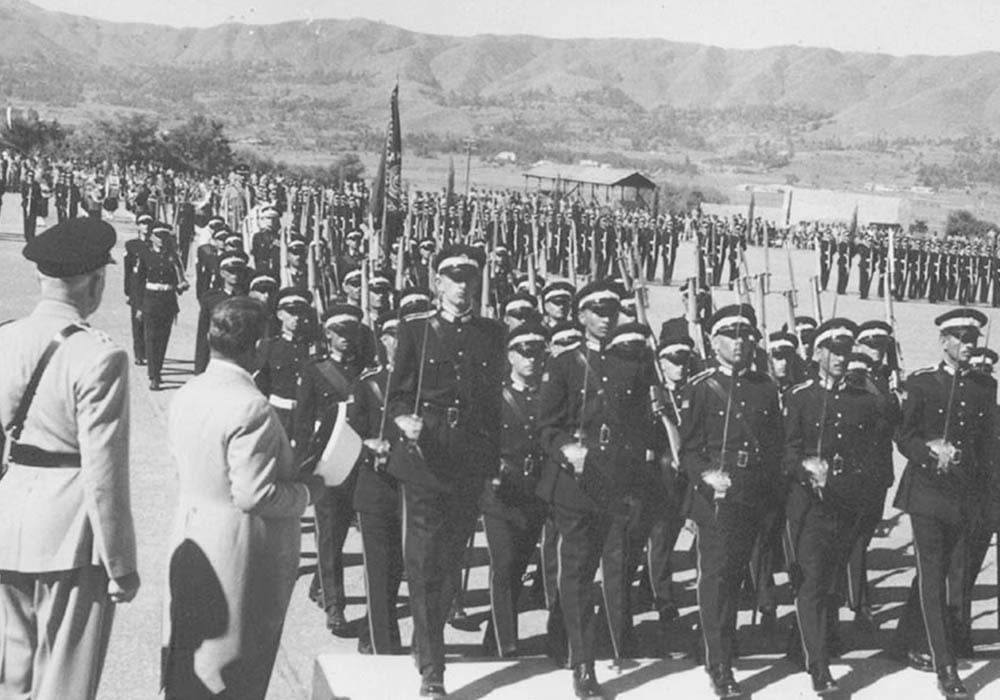
Two-star rank:
After the war of 1947, he was promoted to the rank of two-star in the year 1950. He skipped the one-star which was Brigadier. He was upgraded at the rank of Major-General in the Pakistan Army and promoted by the Prime Minister Liaqat Ali Khan. In his period of military defense, there was the deployment of the Military Police in East-Pakistan when the Bengali Language Movement was started, and there were 4 students shouted by the East Pakistan Army[1].
In the year of 1951, in the administration of Liaqat Ali Khan’s decision and appointed the chief of staff of the army and all other forces dismissed deputation appointment from the British Military. Four-star was when there was the Army GHQ sent the nomination papers to the Prime Minister of the Secretariat[1].
At that time, Ayub Khan was promoted to the three-star and became the first native Commander in chief of the Pakistan army and he was promoted by the Prime Minister of Pakistan Liaqat Ali Khan[1].
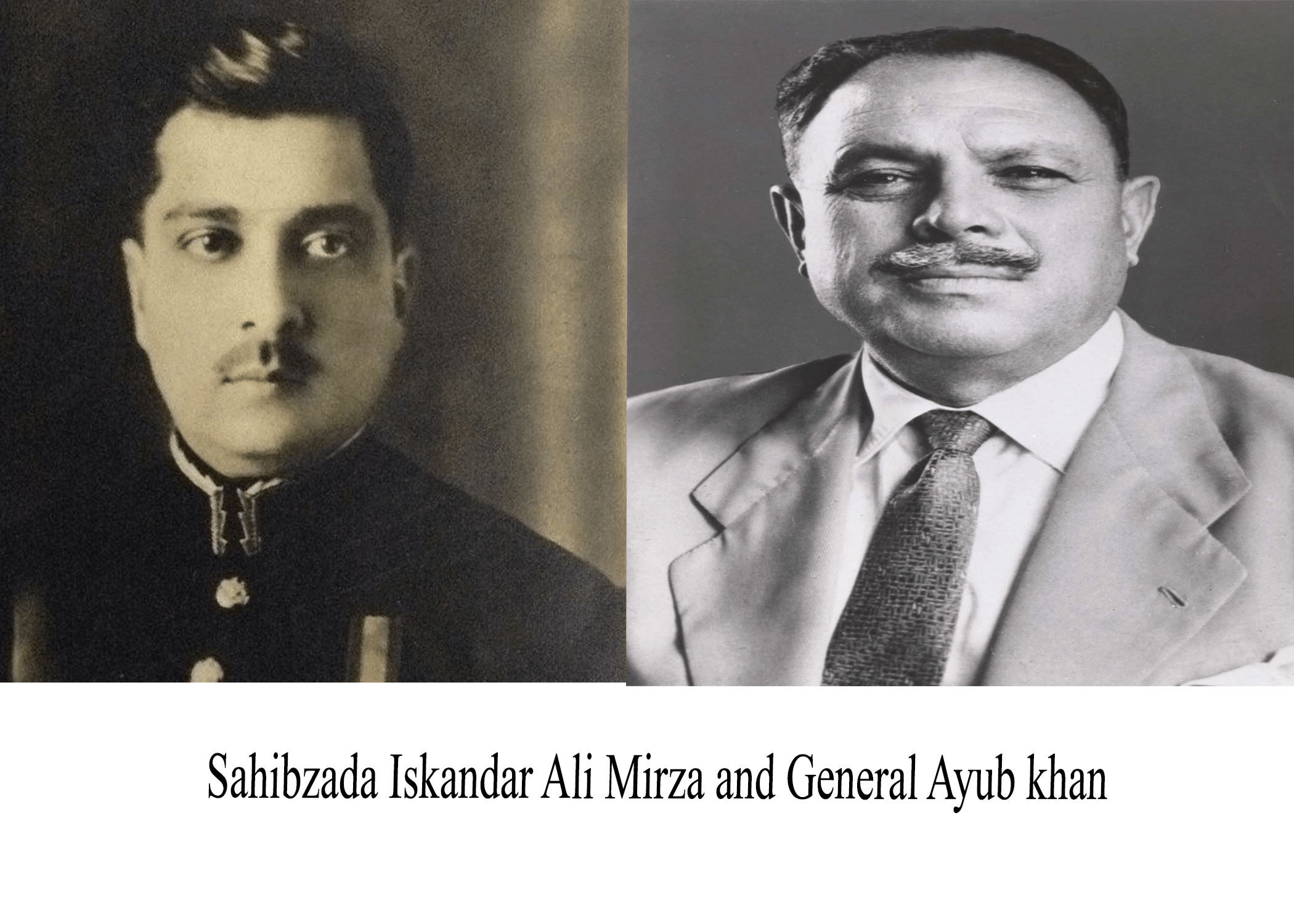
Interior Minister:
Mirza was a fair man and when the bad condition of East-Bengal was bad, he took the charge and was selected by the Governor-General Sir Malik Ghulam on the date of 29th May 1954. By the end of July, he took charge on 1st July 1954 in East-Bengal from the minister of Kahliquzzaman. He executed martial law that was from the East Pakistani Army and they dismissed the East-Bengal Legislative Assembly. When he was in Dhaka Airport, Iskandar Mirza abruptly broadcast the Bangali Language in front of Pakistani Media, and he didn’t feel any hesitation to impose the Bangali Language in, and he was personally threatening Maulana Bhashani of Shooting him[1].
Mirza was selected as the Interior Minister in the Bogra administration of Prime Minister Muhammad Ali Bogra. As an Interior Minister, he gave strong political advocation for the debated geopolitical program. At that time, he faced strong criticism from the West-Pakistan politicians and the public overall[1].
Governor-General of Pakistan:
He also had the rights of commonwealth and Kashmir affairs in the Bogra administration. During that time, the general Governor which was Malik Ghulam was then attacked by the paralysis which made him unable to talk and walk. He took leave of about 2 months and was treated in the United Kingdom[1].
He was appointed as the acting President of Pakistan on 7th August 1955, after that Iskandar Mirza was dismissed and Ghulam takes over at the post on 6th October 1955. When he was appointed as the Pakistan Ambassador for the United States, Prime Minister Bogra was forcedly to resign[1].
Presidency of Pakistan:
The newly established Electoral College universally selected Mirza as the first President on the declaration of the constitution on 23rd March 1956. He built and became the chairman of the republic party that was in direct conflict with the Muslim League party. President Mirza invited Huseyn Suhawardy of the Awami league from East-Pakistan to makethe alliance with the republic party and take over the charge of the Government[1].
President Mirza had very much a lack of parliamentary spirit, he suspecting the civilians to warrant the integrity and authority of the country. He did not conscious interference with the civil administration and which made the Prime Minister unable to function in the Government. He also dismissed the Prime Minister due to this matter and these were four in numbers. At last, there was the seventh- Prime Minister of Pakistan Feroz Khan appointed by the Awami League and the Muslim League[1].
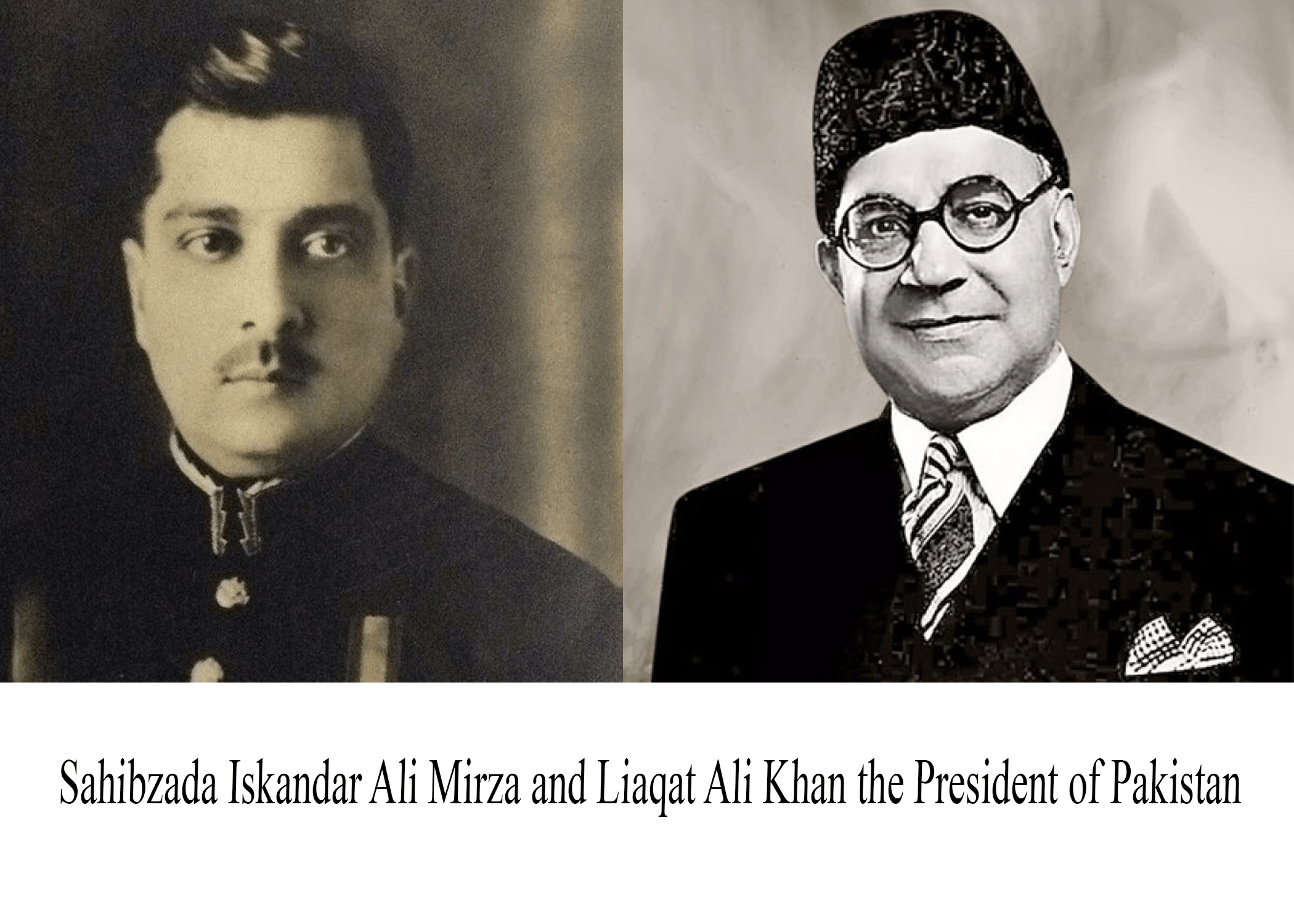
Martial Law:
When there were the elections in the year 1957, both the parties negotiate with each other to share the national government against the Republic Party. In the year of 1958, Prime Minister Feroz Khan had been effectively reorganized the Muslim league which gave threats to the republic party, and at that time, there was the reelection of President Mirza for the second term[1].
Iskandar Mirza publicized through the radio in which he introduced the new constitution “more suited to the genius of the Pakistan nation”, and he believed that the democracy didn’t suit Pakistan “with its 15% literacy rate”. Iskandar Mirza gave confidence to the nation by saying that: [1]
“Three weeks ago, I (Iskander Mirza) imposed martial law in Pakistan and appointed General Ayub Khan as Supreme Commander of the [Armed Forces] and also as Chief Martial Law Administrator… By the grace of God… This measure which I had adopted in the interest of our beloved country has been extremely well received by our people and by our friends and well-wishers abroad… I have done best to administer in the difficult task of arresting further deterioration and bringing order out of chaos… In our efforts to evolve an effective structure for the future administration of this country… Pakistan Zindabad, Pakistan Zindabad!” [1]
— President Iskander Mirza, abdicating on 1958.10.27[1],
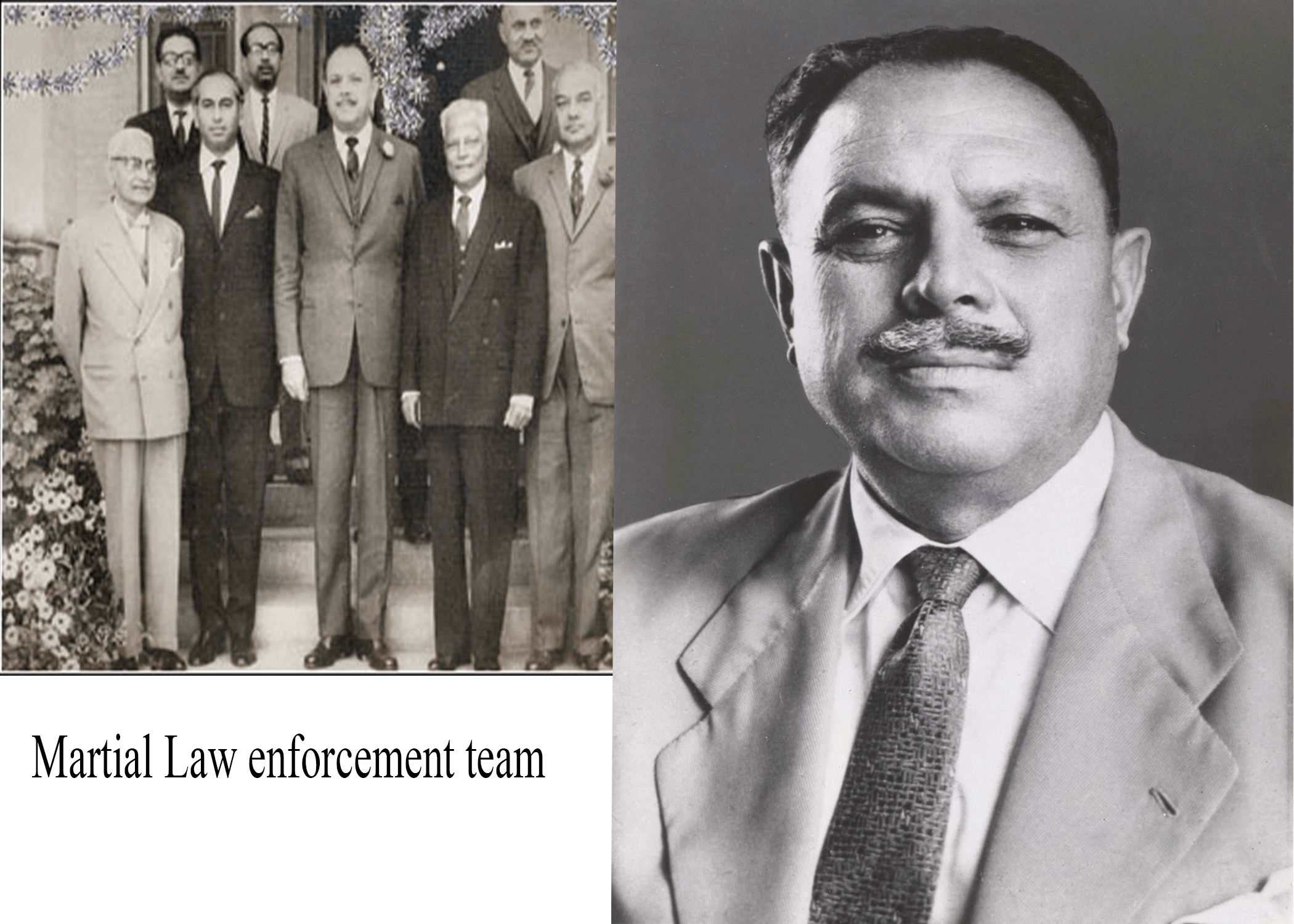
Dismissal and end of Presidency:
The two-man rule political government was evolved under President Mirza and appointed as the chief martial law administration and then Army chief General Ayub Khan. This two-man had different points of view according to the government which was the situation running. They said that they can change the situation. In the year of 1959, Iskandar Mirza accepted the resignation letter of the Vice-Admiral M.S Choudhary, and replace it with Vice-Admiral A.R khan was the new navy chief. President Mirza selected the new administration cabinet that was consist of the bureaucrats and techno arts and was not satisfied with the selection of CMLA General Ayub Khan that was the Prime Minister on 24th October 1958[1].
Ayub Khan had more control over the administration than Mirza. Then, there was the new unit was dispatched by the Ayub khan and enter into the Presidential Palace on the midnight of 26/27 October 1958[1].
He was living in poverty and the Pakistani media said that the Nawab was an aristocrat family, he was living in London and his income was from the pension which was about £3,000 as a former military officer and president[1].
He was in London when he died, when his soul was going towards the last senses, he said to his wife, Nahid “We cannot afford the medical treatment, so just let me die.” At last, he died of a heart attack on 13th November 1969, and at that time there was the President of Pakistan Yaha Khan which denied to buried his body in Pakistan. At last, his body was taken to Iran and now he has buried there[1].
Honors[1]:
- India General Service Medal (1909)
- King George V Silver Jubilee Medal-1935
- King George VI Coronation Medal-1937
- Officer of the Order of the British Empire (OBE)-1939
- Companion of the Order of the Indian Empire (CIE)-1945
- Pakistan Independence Medal-1948
- Queen Elizabeth II Coronation Medal-1953
- Grand Collar of the Order of Pahlavi of the Empire of Iran-1956
- Order of the Supreme Sun, 1st Class of the Kingdom of Afghanistan-1958
References:
1. peoplepill. 17th August 2020; Available from: peoplepill.

